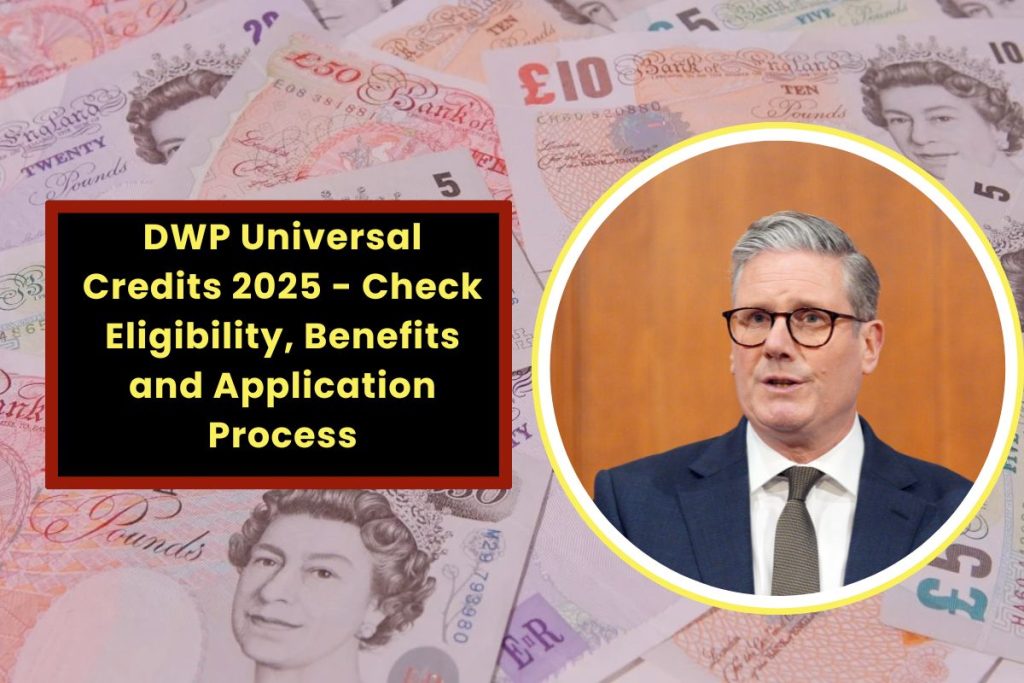The UK is among the major economies in Europe($3.84 trillion in nominal terms), and since Brexit, there has been no significant change witnessed in the economy of the country that can positively impact the layman. The flow of migrants in recent years has put more pressure on resources, which has contributed to rising unemployment and inflation. There has been a steady increase observed in the UK’s population that has started relying on the payouts from the government. Universal credit scheme is one of such programs which aim to assist economically distressed individuals and household who are citizen of the country and have attained the age of legal adulthood (18 years). This scheme is run by DWP (Department of Work and pensions).
Universal credits are transferred every month to the eligible people, making their life a bit easy. It targets individuals with low income or who have the responsibility of raising children. Universal credit integrates already existing benefits into one payment, which is delivered monthly. If you are working part-time or have a low household income, then you must check for eligibility in your case. Let’s have a brief insight into the policy and its major components.
DWP Universal Credits 2025
It’s not always easy to work out what help you can get, especially when money’s tight. Universal Credit is the main benefit in the UK now if your income isn’t enough to cover day-to-day living. It rolls a bunch of older payments into one thing, like housing support, child tax credits, income-based JSA, and a few others.
You get one monthly payment, and it adjusts depending on what you’ve got going on. Whether you’re between jobs, working part-time, or earning under a certain limit, there’s a good chance you could qualify.
Surprise Checks Arrive: Illinois Returns $45 Million to 600,000 Residents
The system looks at your income, how much you have saved, if you’ve got children, your rent, and other stuff. There’s no one amount for everyone; it’s built to shift as your life does.
DWP Universal Credits 2025: Overview
| Country | United Kingdom (UK) |
| Subject | DWP Universal Credit 2025 |
| Authority | Department of Work and Pensions (DWP) |
| Income Threshold | £16000 |
| Increment this year | 1.7% (Effective from April 2025) |
| Minimum age | 18 years |
| Domain | Finance |

Who’s eligible in 2025 for DWP universal credits?
You have to be living in the UK and usually over 18. If you’ve got more than £16,000 in savings, that’s a blocker for most people. But if your savings are under that, or if your income is low, you could be entitled to something.
It doesn’t matter if you’re working with lots of people on Universal Credit, actually are. The amount you earn just changes how much you get. It goes down a bit as your earnings go up.
What’s different this year in universal credit scheme?
Some changes are being rolled out in 2025 that’ll affect how much people get and how often they’ll need to check in.
One of the bigger updates is around deductions. Before, if you owed money (like from an advance payment), they could take up to 25% off your UC. That’s being reduced to 15%, so more stays in your bank account each month. That alone could help people stretch things further.
There’s also a shift in how often people need to confirm their details. Now you’ll likely need to update things like who’s living with you, what you’re earning, and so on every six months or so. It’s meant to keep things accurate, but it’s another step to remember.
Another change worth mentioning is access to a savings scheme. If you’re on UC and earning even a small amount, you can now qualify for a government-backed savings account. It gives you a bonus if you stick with it, kind of a top-up for building some savings over a few years.
What you might get through DWP credits
There’s a base amount called the standard allowance. Then, extra elements get added on depending on your situation. Got kids? Paying for childcare? Need help with rent? All of that can increase what you receive.
There’s also extra support if you’ve got a long-term health condition or if you care for someone who does. It’s not one flat rate. It’s made to adapt, and that’s part of what makes it confusing but also flexible.
How to apply for DWP Universal Credits 2025
It all starts online. You set up a UC account and fill in your details, income, rent, savings, who lives with you, that sort of thing. You’ll probably be asked to attend a phone or in-person appointment, and you’ll need to upload a few documents.
The wait for the first payment is about five weeks. That can be a stretch, especially if you’re applying fresh. There’s an option to get an advance loan if you need money sooner, but that loan gets repaid through your future payments.
Final Thoughts
Universal Credit isn’t perfect, and for a lot of people, it’s still frustrating to figure out. But if you’re eligible and not claiming, that’s money you could be using, especially with prices still rising.
Don’t write it off just because you’re working, either. Plenty of people with jobs still qualify for the benefits, and it’s worth checking because the sooner you apply, the sooner you’ll know what support is available to you under the program.
FAQs
1. Is it possible that one can keep working and still receive Universal Credit?
Yes, it is possible to have the Universal Credits received while working; in fact, many people get credits when working. It depends on the case, such as low income or working part-time can enable one to claim. The difference comes according to earnings, as the wages go up benefits amount gets decreased.
2. What is the eligibility to get qualified in terms of income?
There is no such fixed amount that constitutes a threshold for making one eligible, but rather it is a combination of several factors, such as house rent, children, marital status, which defines co-living, and so on. There are instances where people earning more than £1000 are receiving support, provided that the cost of living lies high. It is suggested to check through the eligibility checker or just apply for it, which will provide you with the appropriate response.
3. How much amount can be expected as support each month?
Everyone’s case is different, and it applies to the payments as well. Apart from the basic payment, extra amount is added if the candidate has children or is physically disabled, having a high housing cost, etc. The exact amount can be fathomed by filling in your details, and remember that it changes with alteration in your personal circumstances.
| NLR News | Click Here |

Hello! I’m Kaylani , a professional content writer with a knack for breathing life into words. I have been providing high-quality, research-driven content in Sectors like Technology & Personal Finance . With a background in Finance Tech Management , I specialize in turning complex information into engaging content that resonates with a wide.
